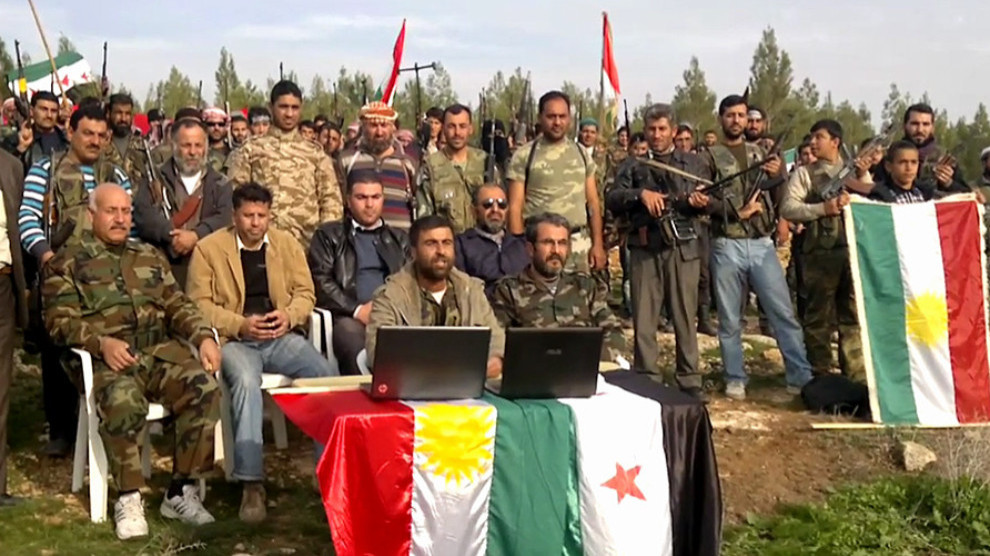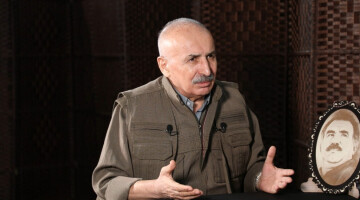The repercussion about the existence of the "Roj Peshmerga" militia in Libya have still not died down. At the beginning of the week, Ahmed al-Mismari, spokesman for General Haftar's Libyan National Army (LNA), spoke out against the transfer of troops from Turkey to his country. Among the militias controlled by Ankara and sent to Libya to support the Muslim Brotherhood regime are apparently members of the "Roj Peshmerga". Mismari had even reported on statements by a captured mercenary, among others on the Syrian-Kurdish television station Ronahî TV. Thereupon, PUK (Patriotic Union of Kurdistan) deputy Serko Azad Gelali called on the South Kurdistan parliament and government to immediately dissolve the militia, which is also equipped with modern German weapons.
About the existence of the "Roj Peshmerga" group in Libya, the press office of the LNA stated: "We believe that the persons in question were sent from Turkey to the region in an organised way. We are in possession of the relevant information. No one comes to Libya on their own to fight.”
The LNA press centre, according to which the presence of Turkish-backed militiamen sent to Libya by the Ankara regime began in the second half of 2019, said the following on the existence of the "Roj Peshmerga" structure in the North African country and imprisoned militiamen: "Among them are Syrian citizens. They belong to the structure of the 'Grey Wolves'. According to their own information they were trained in Erbil by the Turkish secret service MIT. They claim to receive a monthly salary of 2,000 US dollars and to be under the direct command of MIT. We are shocked that Kurds are part of this structure and are in Libya as its members.”
Attacks on Rojava and Shengal
The "Roj Peshmerga" were founded on Masoud Barzani's order on April 12, 2012 against the revolutionary forces in Rojava and were supposed to act against the self-government there in the sense of the KDP and the Turkish government. They are close to the "Syrian Kurdish National Council" ENKS, which is controlled by the KDP and MIT, and their almost 6,000 militiamen were recruited mainly from refugee camps in Southern Kurdistan. The "Roj Peshmerga" could not gain a foothold in Rojava, as they do not enjoy the support of the people. In the past, however, they repeatedly appeared in attacks on Rojava and the Shengal region. German armoured vehicles of the type Dingo were also used.
With the outbreak of the crisis in Syria in 2011, many different groups were formed, and over the years more and more nations and groups have become involved in a conflict that today encounters a complicated web of different actors. In Rojava, too, different groups have emerged. The "Roj Peshmerga" are ideologically in the tradition of the Muslim Brotherhood and move within the jihadist structures of the so-called "Opposition of Syria". In northern Syrian territories such as Afrin, Kobanê and the Cizîrê region, this militia made a name for itself through its factions such as "Tabûra Azadî", "Tabûra Sehaladîn Eyûbî", "Yusif el-Ezma" and "Tabûra Komele" by attacking Kurds.
Massacre in Til Eran and Til Hasil
With the beginning of the Rojava revolution, a series of provocative attacks occurred in the predominantly Kurdish inhabited regions of the northern Syrian governorate of Aleppo. Especially in Sheikh Maksud (Şêxmeqsûd) and Ashrafiya the civilian population was attacked by ENKS groups. In October 2012, ten civilians died in Ashrafiya in an attack by the Azadî group. In Afrin, ENKS groups together with Liwa al-Tawhid attacked the Yazidi village of Qastel Cindo.
After these events, their involvement in the massacre of Til Eran (Tal Aran) and Til Hasil (Tal Hasil) is particularly striking. The massacre was committed by al-Nusra and mercenaries belonging to the "Roj Peshmerga" on 27 July 2013. More than 40 people were murdered, seven of the killed were beheaded.
The Azadî group led by Azad Şehbo from Til Eran was among the perpetrators. Azad Şehbo’s father was a high-ranking soldier in the Syrian civil service and had been involved in massacres against the people of the region.
Alliance with al-Nusra
In Kobanê, mercenaries of the "Roj Peshmerga" cooperated with other FSA groups. Besides arming anti-Kurdish forces, they collected protection money for the FSA under the guise of alleged "taxes". In the Cizîrê region, their groups "Tabûra Neviyên Barzanî" (Battalion of Barzani's Grandsons), "Tabûra Mişel Temo" and "Tabûra Şêx Maşûq" were actively involved in attacks against the Kurds. In Serêkaniyê (Ras al-Ain) they formed alliances with the Al-Nusra front. When the massive wave of attacks on Serêkaniyê was broken by the YPG/YPJ, part of these counter forces fled across the Turkish border to Ceylanpinar, another one to Hewlêr.
Bomb attacks on YPG positions in Rojava
Some Roj Peshmerga mercenaries, who were captured after bomb attacks on YPG positions in Dêrik, Qamishlo, Tirbêspiyê and other regions of Rojava, stated during their interrogations, in training camps such as Bnaslawa near Hewlêr, having been trained in Khinis and at the Bashiqa base near Mosul by the Turkish army and MIT - first as "Pêşmergeyên Rojava" [Rojava Peshmergas], whose name was later changed into "Roj Peshmerga".
RELATED NEWS:














